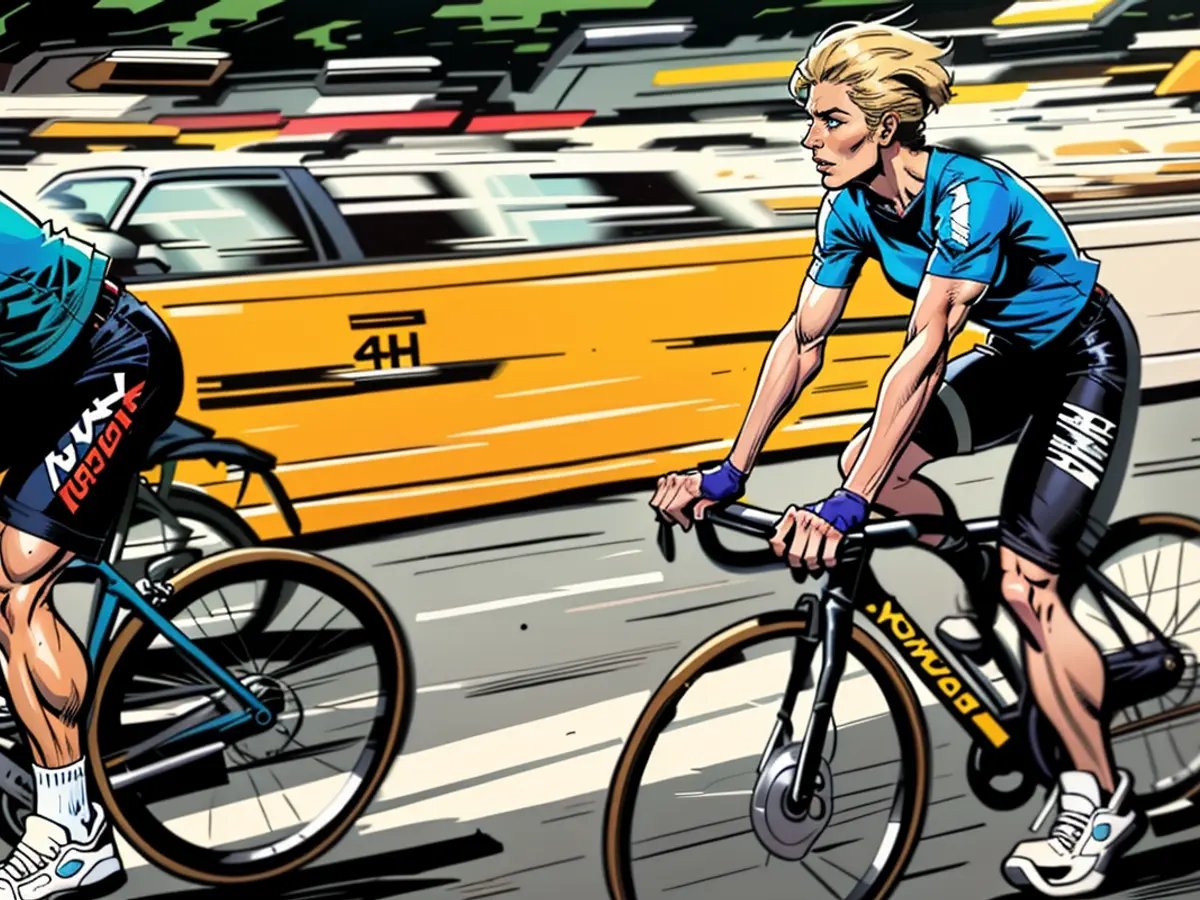Tour de France - Cycling world federation stops Vingegaard team's data bus
Pridefully, the Visma-Team reported close to the 111th Tour de France edition's start that Tour-de-France title defender Jonas Vingegaard would deliver important race data to the team from their "innovative control bus" in real-time. The sports leadership in the cars behind the pros aims to be better informed during competitions with this data. The UCI sports governing body was not pleased with this innovation. They don't want to see it near the track.
The reason being: Through the data, the sports leadership in the cars behind the pros aims to be better informed during the races with information. Frequently, there are signal failures in TV images. Tactical decisions should be made faster, as stated in a Visma press release. The team is known for being a pioneer in data usage.
No accreditation for control bus
A spokesperson for the Tour organization ASO confirmed to the German Press Agency (dpa) that the UCI jury had banned the use of the vans on the Tour de France course. No accreditation was granted. The exact reasons were not stated. On Friday, the UCI had only announced that they would take a closer look at the bus. It was stated that sporting fairness and equal access to technology must be ensured. Possibly, the race stewards were concerned that unauthorized data could be transmitted to the teams. It is only allowed for riders during the races to view body temperature and heart rate.
Reaction of the team: The sports management of the Visma team, led by the German ex-cyclist Grischa Niermann, reacted with surprise. "The UCI has issued a statement, but nothing happens in this van that can't be seen at home," Niermann told "Radsport-news". The bus is just a little more clever, but it doesn't change the fact that I can always be in contact with everyone in the car." Regarding the lack of accreditation, he reacted calmly: "The car doesn't have to be at the race, it can be anywhere."
Reaction of other teams: Rolf Aldag can only partially understand the UCI's actions. "If the UCI now believes that we all ride here like 30 years ago by feeling, then it's clear that they're on the wrong track," said the sports director of the German top team Red Bull to dpa. He wished for a "guideline that comes" to bring clarity. The American team EF reacted humorously. On "X", they posted a picture and asked Visma if they could borrow their control room. In the picture, an employee is seen sitting on the floor with a laptop and next to it, video cameras and a drone are ready.
- Despite the Visma-Team's innovative use of a control bus during the Tour de France, the UCI Cycling World Association expresses disapproval and refuses to grant accreditation for its use on the race course in Italy.
- The Visma team, led by former German cyclist Grischa Niermann, is taken aback by the UCI's decision, insisting that the control bus contains no technology not already accessible to them off the race track.
- The UCI's concerns likely stem from the potential for unauthorized data transmission to teams, as only riders are allowed to view body temperature and heart rate during races under UCI regulations.
- The resolution of this issue may impact various teams participating in UCI's WorldTour, including German squad Red Bull, who partially understands the UCI's position but requests clarity and a universal guideline to move forward.
- American team EF responds humorously to Visma's predicament, offering to lend their "control room" for the Tour de France, complete with an employee using a laptop and ready-to-hand video cameras and a drone.
- The evolving technology and its application in competitive cycling continues to be a point of contention between the sport's governing bodies and teams, raising questions about sporting fairness and innovative advancements in the sport.








